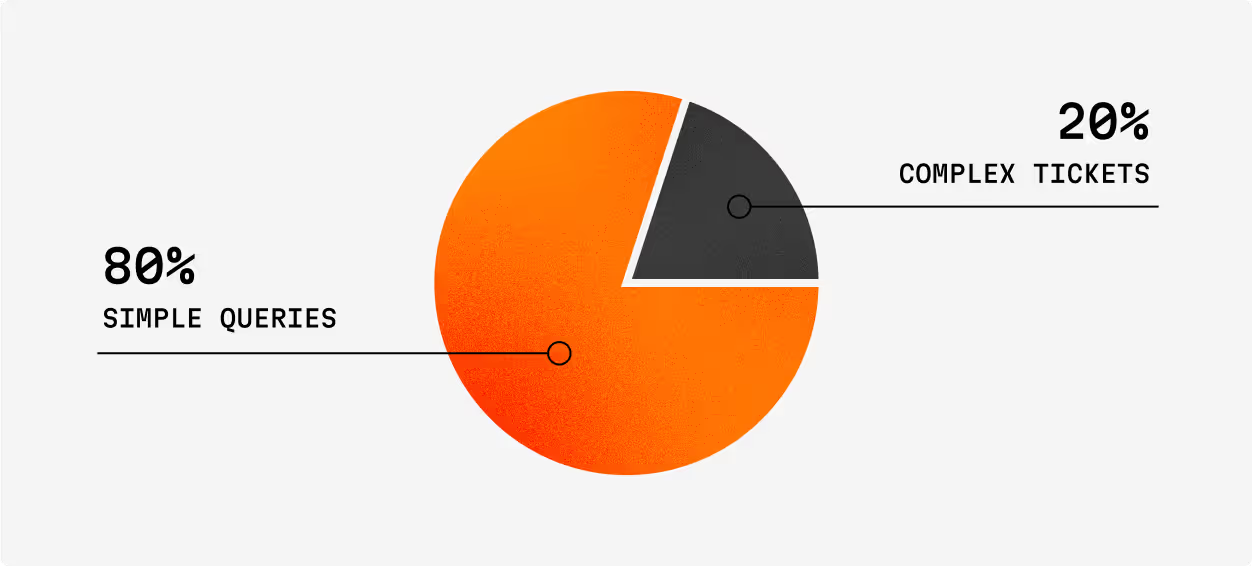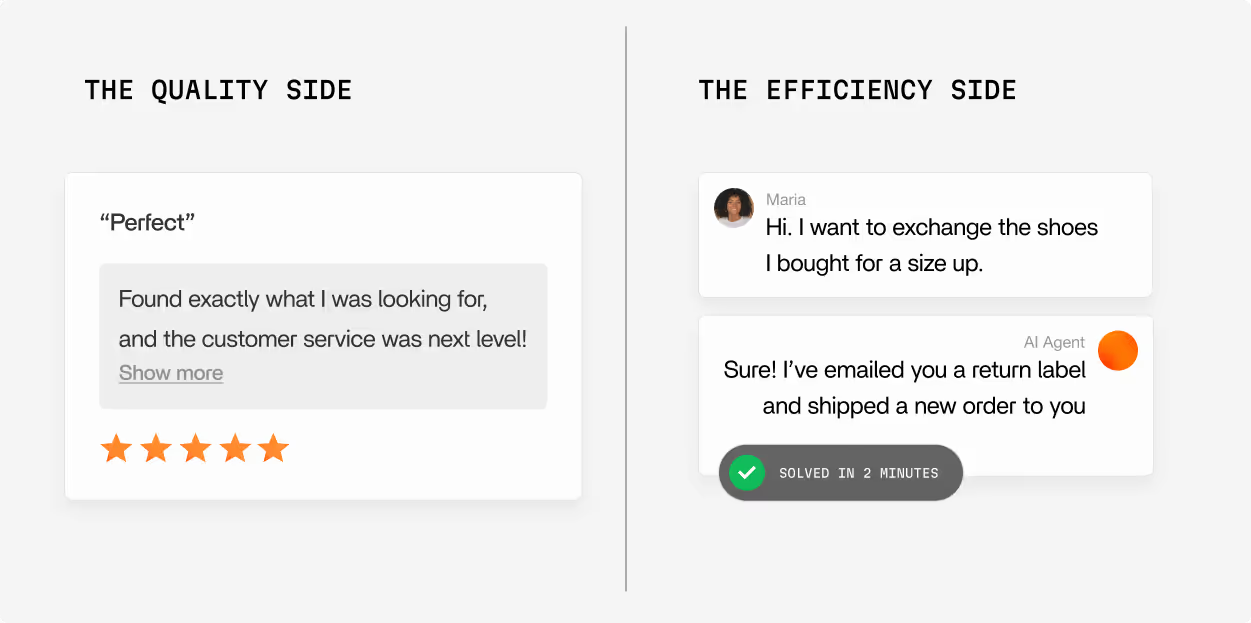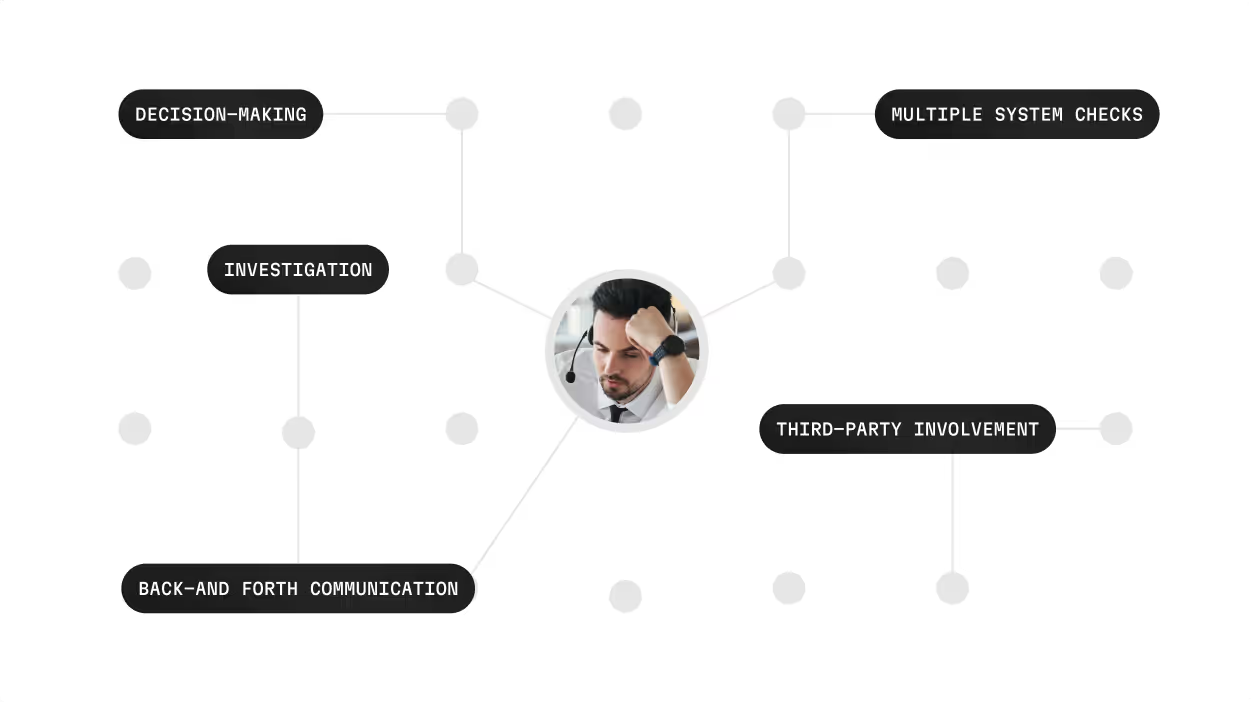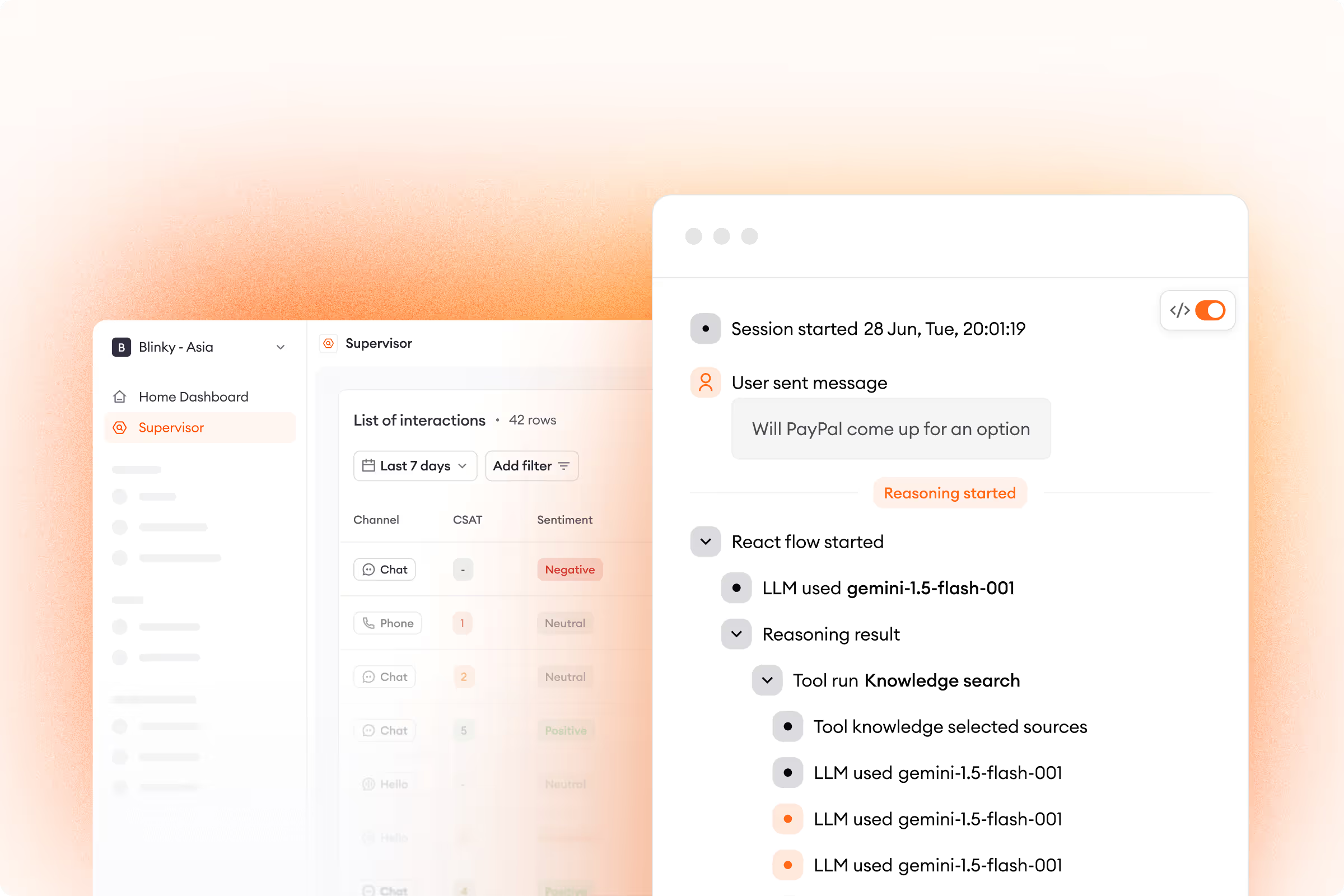Preparing for 2025: your guide to AI customer service tools
We’ve shadowed hundreds of customer service agents while working with our clients. One of our main observations is that the Pareto principle is alive and well.
For almost every client we work with, 80% of their support tickets are simple queries. Easy to solve, easy to automate.
The other 20% are usually complex tickets, which take several steps, multiple people, and data from multiple systems to solve. These are the tickets that your agents spend 80% of their time on.
If you’re surprised, you're not alone. Many businesses focus their automation efforts on handling those "easy" tickets.

But is there a way to tackle both? That depends on which customer service platform you’re using.
The reality of customer service in 2025
The challenge of customer experience/service departments has always been the same: do your best to respond to customer needs. Proactively address those needs, build relationships with customers.
Customer needs haven't fundamentally changed, but they've intensified. Customers now expect:
- Faster problem resolution (because who has time to wait?)
- Natural, conversational interactions (not robotic scripts)
- Deep personalization (like knowing their order history and preferences)
- Instant help across all channels
To meet these expectations requires more than a conventional chatbot that can answer FAQ-based questions. It takes a system with advanced, AI-powered capabilities that make your agents more efficient.
Key customer service metrics for 2025 and beyond
On the quality side, everyone says that customer satisfaction (CSAT) score is essential. Everyone wants 5-star reviews, and many are building playbooks for reaching out to customers that left bad reviews and winning them back.
On the efficiency side, everyone is looking to save more time. With the rapid onslaught of new technology, novel automation capabilities are opening up left and right. Everybody’s looking for efficiency gains to reduce resolution time.

One of the biggest inefficiencies that we keep seeing in the industry is customer agents spending most of their time outside of their CS platform. A platform that removes the need for agents to switch between different apps can make a significant impact on resolution time and the job satisfaction of your agents.
The 80/20 rule of customer service
While most of your tickets might be simple queries that can be automated, your team spends most of their time on complex cases that:
- Require multiple system checks
- Need third-party partner involvement
- Call for investigation and back-and-forth communication
- Demand detailed decision-making

Every complicated case consists of multiple steps. If you can shave down the time required to finish those steps, you’ll end up saving hours of your agents’ time per day. On the scale of a year, that’s a huge efficiency boost.
How should you approach choosing your AI customer service platform to make sure that you can reap those benefits?
Your 2025-ready customer service platform checklist
1. True omnichannel automation
Look for platforms that can scale automation across all channels. Ensure a unified experience whether customers reach out via email, chat, social media, or voice.
Remember: customer problems don’t change depending on the channel. A lost package is a lost package, regardless if the customer reaches out by email or phone.
2. Real-time personalization
True personalization requires proper integration with your business systems. Do you have real-time access to order numbers, shipping info, inventory?
If your platform can pull this data, you can quickly provide contextual responses based on customer history and the current situation.
3. Complex business process automation
Can you go beyond FAQ-style automation? Can your platform support agents in handling multi-step processes like returns or exchanges?
For greater efficiency, make sure your platform can check policies, offer alternatives, and execute actions.
4. Smart knowledge management
Your platform should support region-specific information and enable easy updates across multiple languages.
Make sure you can maintain different policies for different customer segments and locations.
5. Native, built-in AI support
Writing assistance, ticket summarization, grammar-fixing, these are all table stakes at this point. Your platform should have this built in. You shouldn’t have to use add-ons or third-party plugins in order to enable AI features.
6. Intelligent ticket routing
Working with clients, many of them used to assign an arbitrary number of random cases (say, 50) for each agent on their team, every day. This is a very inefficient way of working with tickets.
With a smart system for ticket routing, tickets are assigned to agents based on their skills and expertise, and priority customers are always served first. This is one of the most powerful capabilities for shaving down resolution times, so your platform should have this capability.
7. Unified agent interface
One of the most annoying things about working on computers is all of the constant switching between different apps. It can really take the wind out of you.
That’s why a great platform provides all the information that an agent needs in one view. You should have action capabilities within the platform, and be able to customize the agent interface based on your needs.
Bonus factors to consider
These apply to most decisions about buying software, but it’s always worth it to remember the fundamentals:
- Always double-check if your new platform can integrate with your existing systems.
- Your new platform should simplify work, not complicate it. If it takes less clicks to do something, you’re on the right track.
- Your company will grow, and your tech should be able to grow with you.
- Are you choosing a platform that prioritizes the same channels as you? Choose systems that accommodate your needs.

The bottom line
The best AI customer service platform for 2025 doesn’t just handle more tickets.
It transforms how your team works.
Look for a solution that can tackle both simple and complex cases while making agents more efficient.
Your agents shouldn't have to think about which ticket to handle next. Or juggle multiple systems to solve a single problem. The right platform will handle it for them, letting them focus on what matters most: delivering exceptional service that makes customers smile.
Ready to evaluate your current setup against these criteria? Your future customers will thank you for starting now.
.avif)

.avif)
.svg)
.avif)






